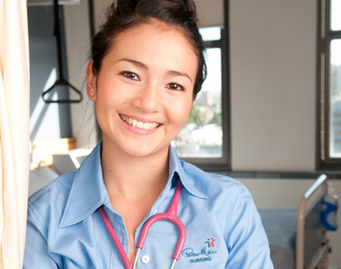Qualifying as a nurse can be a rewarding and life-changing experience, and sets you up with a career for life. A great place to start is by going back to school. If you already have your Bachelor’s in a relevant field, then you should start thinking about pursuing your Master of Science in Nursing. As long as you are a registered nurse, you can achieve a Master’s in the field. Best of all, this degree can be obtained online, so if you’re already working in a hospital, you can easily balance your education with your career and start receiving promotions in no time. That said, there are still a plethora of educational options that potential nurses can explore when going into the field. When student nurses choose to qualify they choose to explore a specialist area, where they will train to nurse the specific kinds of patients within their specialty.
Adult nursing
Students who train as adult nurses will be exposed to a variety of work including hospital, community, and even sexual health clinics. There is a strong focus on looking after adults, and working with a range of other healthcare professionals including doctors, care workers, physiotherapists and psychologists. A career in adult nursing usually makes it easier to progress in the NHS, as most adult nurses can hold all posts within the career ladder
Child nursing
Studying to become a child nurse can be a more complex procedure than studying to treat adults. Within the responsibility of being a child nurse, they must be able to calm the patient as well as reassuring the parents of the child. Children also have a more complex health system, and the skills from an adult course aren’t always transferrable. Lots of universities like Middlesex University offer child nursing courses alongside adult nursing and midwifery.
Mental health nursing
A mental health nurse has to deal with a lot more psychological disorders and the day-to-day management of people with mental health problems.The NHS estimates that as many as one in three people have a mental health condition, so a high volume of nurses are needed within this area. Students who train in this area must have a high level of confidence, as well as being able to deal with potentially violent situations.
Learning disability nurses
For those who specialise in this area, they will take a more hands-on and care worker role. Learning disability nurses usually build up a relationship with their patients over a long period of time as progress can be slow, and will teach them the skills for a more independent life. These types of nurses are also more likely to work in a broader range of workplaces including schools, community centres, hospitals and the patient’s home.
Midwifery
Becoming a midwife is a specialisation within itself and is seen as a very separate profession to nursing. However, over the duration of the course some aspects of midwifery overlap with the general nursing classroom skills and student midwifes will often learn alongside those training in other specialist nursing areas. Becoming a midwife can be one of the most rewarding areas of nursing, as they help women through their pregnancies, to the birth and then supporting them after delivery. Midwifes can be based in hospitals, GP surgeries and also within the community making home visits.

